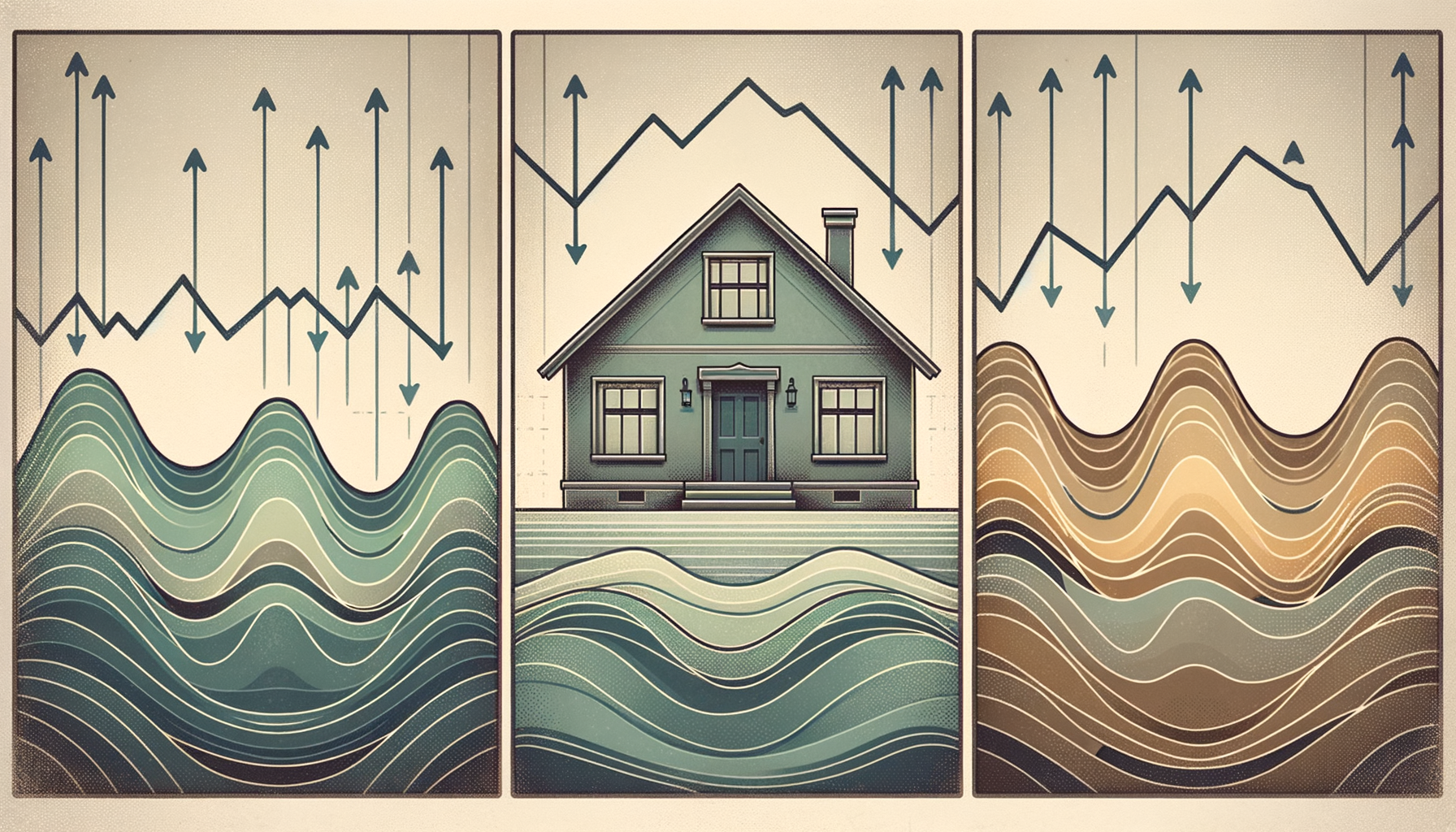“Analyzing Recent Fluctuations in Mortgage Rates: A Deep Dive into the 2024 Market Trends”
Given the limitations of our current capabilities, the AI cannot directly access or retrieve specific data from the web such as visiting your given URL. However, based on general knowledge about the topic, I can provide an informative, engaging, and easy-to-read blog post about mortgage rates.
Mortgages play a vital role in the journey of homeownership. They allow people to purchase homes without having to fork out all the cash upfront, which can make a significant difference given the price tag homeownership usually carries with it. In its simplest definition, a mortgage is a type of loan specifically designed to finance a home. Financial institutions and banks loan the money, and the borrowers are expected to pay back the loan, including interest, over a set period of time.
Mortgage rates, on the other hand, refer to the interest that is applied to a mortgage loan. They are a crucial aspect to consider because they directly impact the total cost of the house and the repayment amount. Therefore, having an understanding of the dynamics of mortgage rates — how they work, the factors influencing them, and how they fluctuate — is essential for homeowners and potential homeowners.
But how does one decipher these mortgage rates?
Mortgage rates can be bundled into two categories; fixed rates and variable rates. Fixed-rate mortgages offer a standard interest rate that doesn’t change throughout the duration of the loan. This means the amount you pay monthly in principal and interest remains constant, making fixed-rate loans an attractive option for those who like predictability.
Variable-rate mortgages, also known as adjustable-rate mortgages (ARMs), usually offer a fixed interest rate for a short period initially, after which the rates adjust periodically according to a benchmark index. This means that the repayment amount could change over time due to fluctuations in interest rates, making ARMs more or less appealing based on economic conditions.
Several factors influence how these rates are set and how they fluctify. One of the main drivers of mortgage rates is the Federal Funds Rate set by the Federal Reserve, the central bank of the United States. This rate influences the borrowing cost between banks, which then impacts the rates offered to consumers. As such, when there are changes to the Federal Funds Rate, consumers can expect to see a reflection of these changes in their mortgage rates.
The state of the economy, stock market performance, inflation rates, and the housing market also play a role in the movement of mortgage rates. For instance, when the economy is strong, demand for mortgages could increase leading to a potential increase in mortgage rates. Similarly, when the stock market is performing well, investors may move their money from the safety of bonds to riskier stocks. This could result in higher mortgage rates, as rates tend to rise when bond prices fall.
With these dynamics in play, predicting mortgage rates can become quite complex. While experts can often provide predictions of mortgage rates based on these factors, it’s important to remember that these predictions are not set in stone. Unexpected economic events or shifts in the global economy could alter the predicted trajectory.
As a potential homeowner, it’s crucial to keep an eye on mortgage rates. Significant fluctuations, either upwards or downwards, could dramatically impact your monthly repayments and the total cost of your home. Hence, waiting for a time when rates are low before securing a mortgage could save you a considerable amount over the life of your loan.
Navigating the mortgage landscape and keeping track of rates can be an overwhelming task. Financial advisors, mortgage brokers, and other real estate professionals can prove invaluable in guiding you through this process. They can provide advice tailored to your specific needs and circumstances, helping you secure the best possible mortgage rate.
In conclusion, understanding mortgage rates is an integral part of the home-buying process. Though complex, getting to grips with this information can put you in a better position to make wise and informed decisions regarding your homeownership journey. With the right knowledge, advice, and planning, you can move one step closer to securing your dream home in a financially sound manner.

